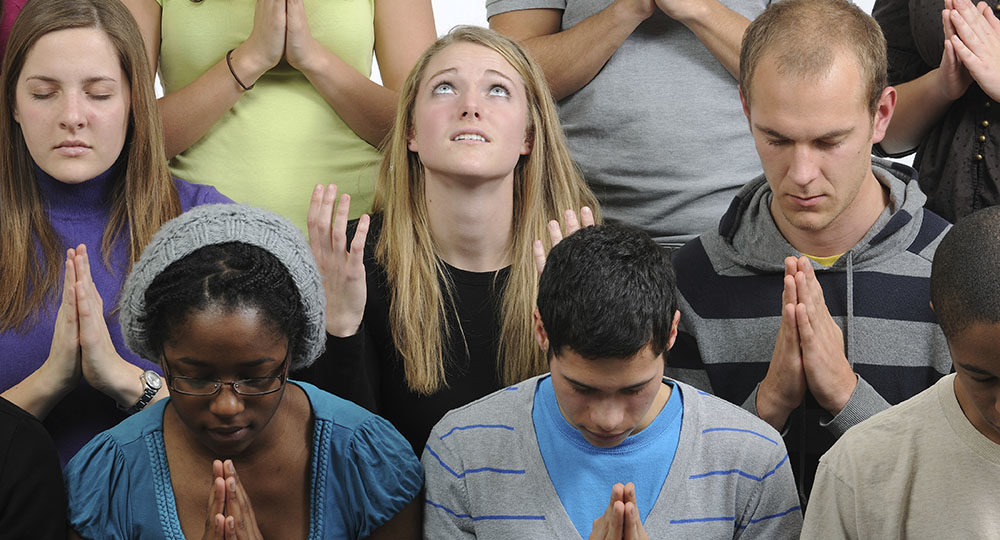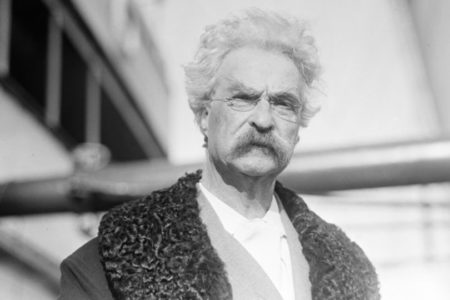Elliott and Intercessory Prayer
Like any 7-year-old boy, Elliott loved to climb. Trees, dirt piles, bunk beds—he climbed them all. He especially enjoyed climbing on the shelves at his parents’ restaurant where I used to work part-time while pastoring my church.
Despite repeated warnings from both parents, Elliott climbed on racks of utensils, ingredients, and canned goods. One day we heard a tremendous crash that sent Elliott’s mother, two waitresses, and a busboy running to the shelves.
Elliott lay under a rolling rack, a pool of blood forming around one of his feet where the big toe appeared to be hanging by a thread. His mother dialed 911 and then phoned her husband. He arrived just as Elliott was wheeled from the restaurant to the ambulance. He walked near Elliott, tenderly holding his hand and assuring him everything would be fine. As the ambulance door closed, he turned to his wife. “How could you let this happen?” he asked.
Mom left for the hospital. Dad remained to run the restaurant. Both were scared. Everyone returned to work in that dim atmosphere, waiting for the phone to ring with news about whether Elliott’s toe could be saved.
The father was sullen and quiet. He stared blankly across the dining room and out the window. I passed behind him and placed a hand on his shoulder. “I prayed for him,” I said softly. “And for your wife and you, too.”
As I let him release his anger and fear, Proverbs 18:10 came to mind: “The name of the Lᴏʀᴅ is a strong tower; the righteous run to it and are safe.” I had memorized this passage; and often, in prayer, I had run to this strong tower for safety in times of need and crisis. In my Lord, whose name is “a strong tower,” I had found comfort and help. Now God was showing me another dimension of the passage.
It was as if He said to me, “They don’t know where the tower is. You must run there for them.” It was a privilege to petition the Lord on their behalf. In a small way, I was showing them the way to the tower. God pointed the way through me. Prayer took them there, and they were safe.
Practicing Philippians 2:4
This type of praying is known as intercession or intercessory prayer. The word intercession comes from a Latin word meaning “to intervene on behalf of another.” In intercessory prayer we pray for one another. We plead the cause of others before God. We pray for their needs to be met and for God to bless them, looking beyond our own situation to the well-being of others, as the apostle Paul encouraged us: “Let each of you look out not only for his own interests, but also for the interests of others” (Phil. 2:4).
The Bible is filled with examples of intercessory prayer. Moses prayed for his nation. Abraham prayed for a city. Others prayed for individuals. Isaac prayed for his wife to conceive a child. David prayed for his sick child. The early church prayed for Paul in his ministries, as well as for the apostle Peter to be released from prison. Probably the greatest example of intercession is found in John 17:9 when Jesus prayed for us.
History, too, is full of examples of intercessory prayer. Gen. George Washington prayed for his troops at Valley Forge. Scottish clergyman John Knox (ca. 1505–1572), deeply desiring the Protestant Reformation to reach Scotland, prayed, “O Lord give me Scotland, or I die.”1 Similarly, John Hyde (1865–1912), an American missionary serving in India, prayed, “Give me souls or I die.”2
These prayers follow the example of the intercessory prayer of a young King Solomon in 1 Kings 3:9: “Therefore give to Your servant an understanding heart to judge Your people, that I may discern between good and evil.”
Intercessory prayer is a vital part of spiritual life. Husbands pray for sick wives. Mothers pray for wandering children. Pastors pray for the needs of their congregants. Congregants pray for the needs of others—both within the fellowship and outside of it.
Many needs have been met, bodies healed, much money supplied, guidance given, wisdom acquired, answers received, and comfort enjoyed through intercessory prayer. Intercession for others has yielded amazing results.
Learning Not to Quit
The phone in the restaurant rang at last. Elliott’s mother phoned from the emergency room to report that the toe had been saved. The injury was far less serious than anyone anticipated. The boy would be fine. In fact, that same afternoon Elliott was back playing at the restaurant—but no climbing.
I wish every intercessory prayer yielded such positive results. We know that God, in His infinite wisdom, often answers our prayers differently than we expect. There are times when He says, “No” or “Wait” or “I have a better plan.”
When we receive answers that differ from our expectations, we must not quit praying. We must continue to intercede for others and trust God for the best answers to those prayers. We must obey the biblical command, “Pray without ceasing” (1 Th. 5:17). And we press on.
Some view intercessory prayer as the most important ministry of God’s children. In all we are called to do and through all we attempt to do to serve God, the most important task may be intercessory prayer. The greatest results are not produced through our own accomplishments. Perhaps the greatest accomplishments are the result of quiet prayer on behalf of others.
ENDNOTES
- Nick Bibile, “The Protestant Roots” <sounddoctrine.net/Nick/protestant_roots.htm>.
- “John Hyde” <theoldtimegospel.org/studies/preach23.html>.








Please pray for my husband Stephano to return back home. The devil is doing lots of tricks to separate us. Praying for protection and God’s intervention to work in my husband heart. thanks. Msg from Ruth